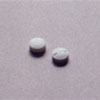RITALIN

What are the street names/slang
terms for it?
Kibbles and bits, Pineapple.
What is it?
Ritalin, the
trade name for methylphenidate, is a medication prescribed
for children with an abnormally high level of activity or
with attention-deficit hyperactivity disorder (ADHD) and is
also occasionally prescribed for treating narcolepsy. It
stimulates the central nervous system, with effects similar
to but less potent than amphetamines and more potent than
caffeine. Ritalin has a notably calming effect on
hyperactive children and a "focusing" effect on
those with ADHD. When taken as prescribed, Ritalin is a
valuable medicine. Further, research funded by the National
Institute of Mental Health has shown that people with ADHD
do not get addicted to their stimulant medications at
treatment dosages. Because of its stimulant properties,
however, in recent years there have been reports of its
abuse by people for whom it is not a medication. These
prescription tablets can create powerful stimulant effects
and serious health risks when crushed and then snorted like
cocaine, or injected like heroin.
What does it
look like?
Ritalin is in
pill or tablet form.
How is it used?
Many
non-medical users crush the tablets and either snort the
resulting powder, or dissolve it in water and
"cook" it for intravenous injection.
What are its
short-term effects?
Ritalin
(methylphenidate) is a central nervous system stimulant,
similar to amphetamines in the nature and duration of its
effects. It is believed that it works by activating the
brain stem arousal system and cortex. Pharmacologically, it
works on the neurotransmitter dopamine, and in that respect
resembles the stimulant characteristics of cocaine.
Short-term effects can include nervousness and insomnia,
loss of appetite, nausea and vomiting, dizziness,
palpitations, headaches, changes in heart rate and blood
pressure (usually elevation of both, but occasionally
depression), skin rashes and itching, abdominal pain, weight
loss, and digestive problems, toxic psychosis, psychotic
episodes, drug dependence syndrome, and severe depression
upon withdrawal.
What are its
long-term effects?
High doses of
stimulants produce a predictable set of symptoms that
include loss of appetite (may cause serious malnutrition),
tremors and muscle twitching, fevers, convulsions, and
headaches (may be severe), irregular heartbeat and
respirations (may be profound and life threatening),
anxiety, restlessness, paranoia, hallucinations, and
delusions, excessive repetition of movements and meaningless
tasks, and formicaton (sensation of bugs or worms crawling
under the skin).
What is its
federal classification?
Ritalin is a
Schedule II drug.
Source:
IPRC
|